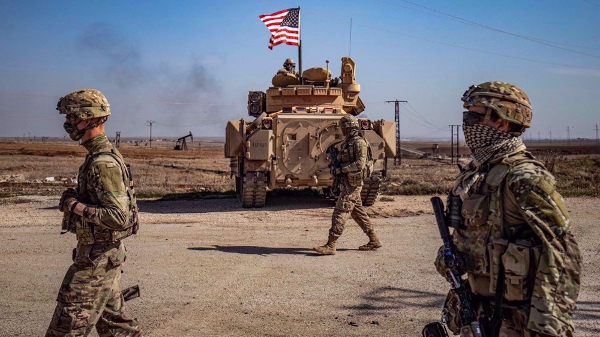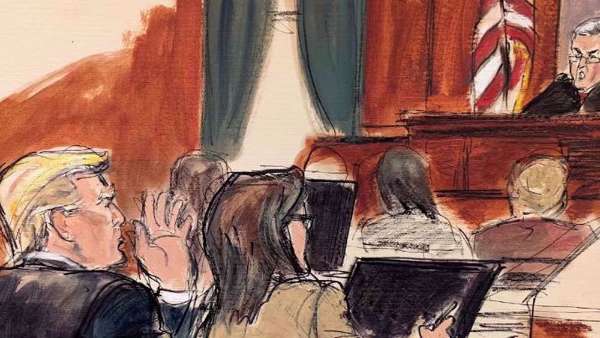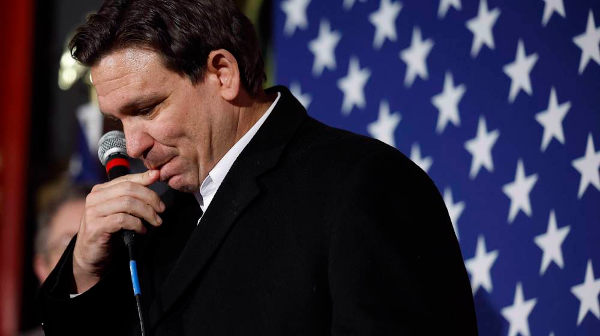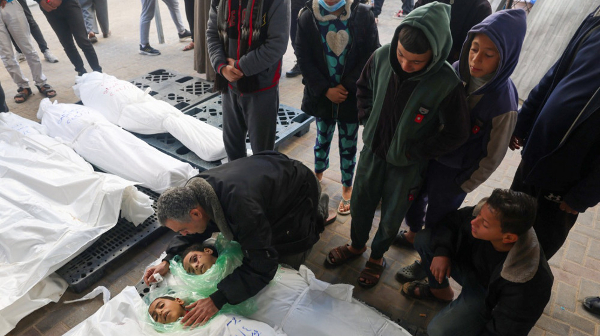The World Health Organization (WHO) has described the coronavirus death toll in the United States as shocking, warning that the US is "facing a critical situation" now.

"The epidemic in the US is punishing. Itís widespread. Itís, quite frankly, shocking to see one to two persons a minute die in the US, a country with a wonderful, strong health system and amazing technological capacities," executive director of WHOís Health Emergencies Program, Mike Ryan said.
Ryan said the US has accounted for a third of all world cases over the last number of weeks.
He encouraged Americans to keep maintaining social distancing "even if it sounds terrible."
WHO Director-General Tedros Adhanom Ghebreyesus said the agency has not yet contacted with US President-elect Joe Bidenís transition team.
Earlier this year, Donald Trump announced the US withdrawal from the WHO, saying the body was too deferential to China, and called it corrupt. Biden has expressed an interest in reversing that decision.
US health officials are worried that the epidemic situation will become even more aggravated than it was during the Thanksgiving holiday as the year-end holiday season is approaching.
Dr. Anthony Fauci, the US governmentís top infectious disease expert, warned that the pandemic could worsen after the year-end holidays, saying on Monday that he has the same concerns about Christmas that he did about Thanksgiving.
"Without substantial mitigation, the middle of January can be a really dark time for us," said Fauci.
Millions of Americas ignored public health advice and traveled for the Thanksgiving holiday in November.
Dr. Scott Gottlieb, former US Food and Drug Administration (FDA) chief, also said that the COVID-19 epidemic situation in the US is expected to worsen over the next four to six weeks, with infections, deaths and hospitalizations continuing to rise, and with the number of hospitalizations expected to reach 150,000 to 175,000 in a single day.
Another lockdown in California as hospitals overwhelmed
People in the most populous US state faced heavy new restrictions on Monday aimed at slowing the spread of COVID-19.
Californiaís order has affected about three-quarters of the nearly 40 million people in the state. It will last at least three weeks and shuts all but critical infrastructure and retailers.
California Governor Gavin Newsomís order allowed some schools to continue to hold classes. But the Los Angeles Unified School District, the stateís largest, closed campuses that had been partially open to offer in-person services and tutoring, affecting many special-needs students.
Newsomís directive applied to places where fewer than 15% of intensive-care hospital beds remain available, so far affecting Southern California and the San Joaquin Valley near San Francisco.
Dr. Fauci said on Monday the stateís action would "rescue them from possibly getting their hospitals overrun."
California set a record in new cases with 30,000 on Saturday and recorded nearly 25,000 more on Sunday. Hospitalizations also hit records. In the San Joaquin Valley, just 6.3% of intensive care unit beds were available, the state said Monday.
According to a Reuters tally, the COVID-19 infections are at their peak in the US, with an average of 193,863 new cases reported each day over the past week.
There have been 14.7 million confirmed infections and more than 282,000 coronavirus-related deaths reported in the United States since the pandemic began, the most in the world.
New Yorkís governor threatened to ban indoor restaurant dining in New York City if hospitalization rates keep climbing this week.
Trump to order priority access to US vaccines for Americans
The US president will sign an executive order on Tuesday to ensure that priority access for COVID-19 vaccines is given to the American people before assisting other nations, senior administration officials said on Monday.
The Trump administration is confident it will have enough vaccine to inoculate everyone who wants a vaccine by the end of the second quarter of 2021.
New York Times had said the US the government declined when vaccine developer Pfizer Inc offered in late summer to sell more vaccine doses to the United States.
The New York Times reported that Pfizer may not be able to provide more of its vaccine to the United States until late June or July because of its commitments to other countries.
Trump, who has faced sharp criticism for his handling of the coronavirus pandemic, is eager to take credit for the speedy development and distribution of a vaccine.
US Health and Human Services Secretary Alex Azar said the US government had the option to purchase an additional 500 million doses of the Pfizer vaccine but declined to say whether the Trump administration was pursuing that option.
LINK: https://www.ansarpress.com/english/21288
TAGS:






























 NY attorney general fires back at Trumpís defense of financial statements
NY attorney general fires back at Trumpís defense of financial statements 




